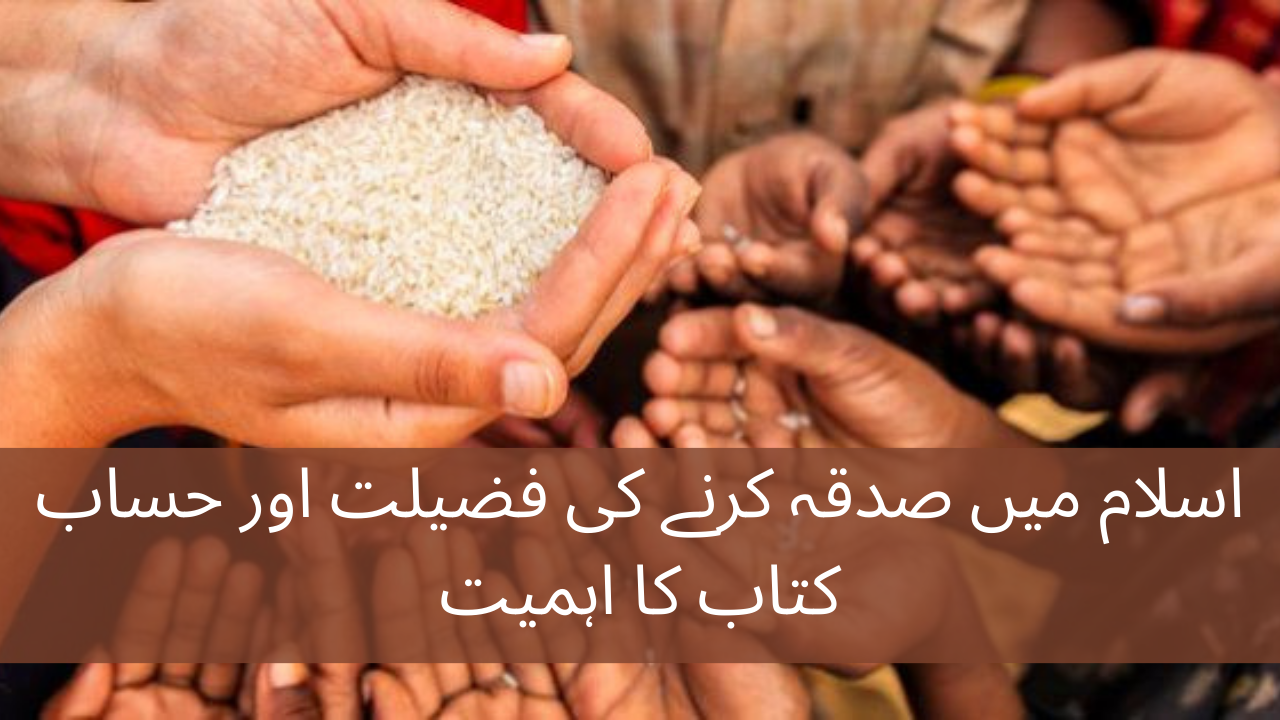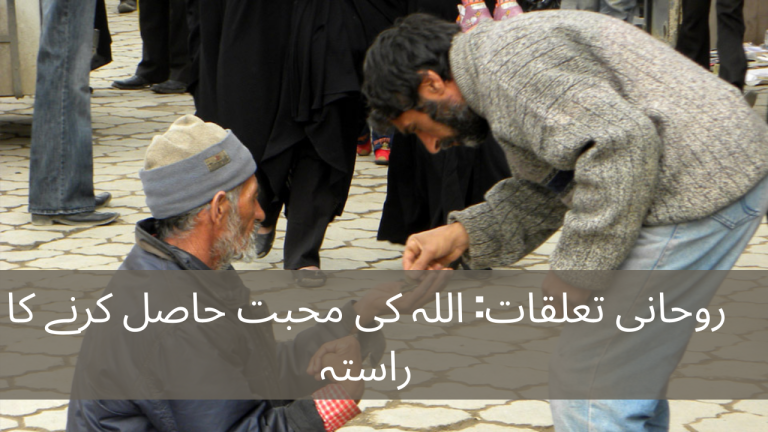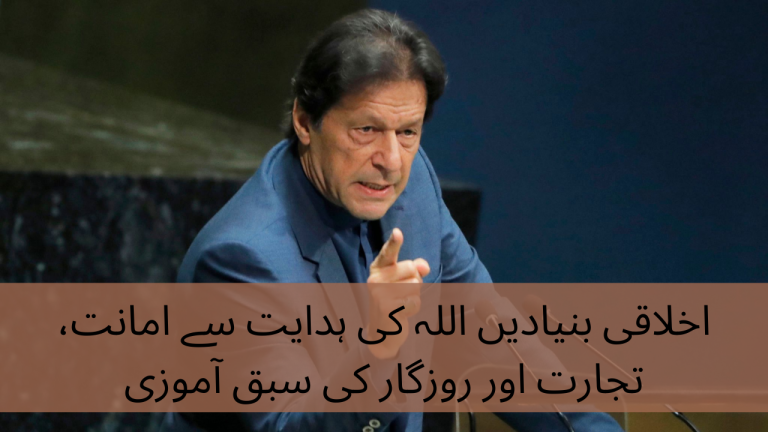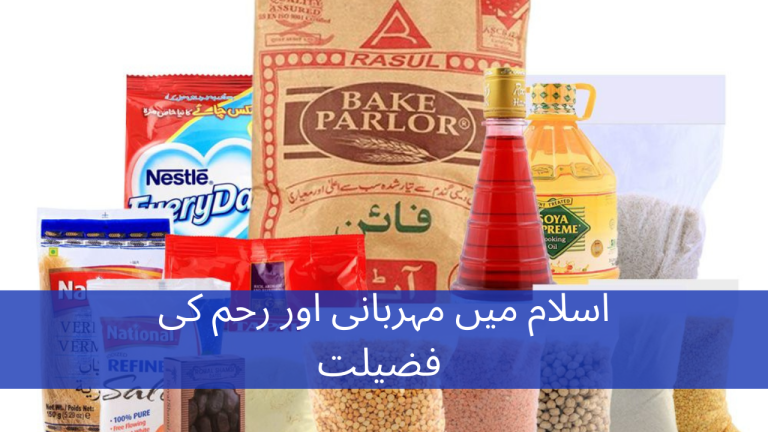Islam May Saqa Karnay Ki fazilat Or Hisab kitab Ki Ahmiyat

Islam May Saqa Karnay Ki fazilat Or Hisab kitab Ki Ahmiyat
Read Hadees
رواه البخاري
The Importance of Charity and Accountability in Islam
Arabic (العربية)
عَنْ عَدِيَّ بْنَ حَاتِمٍ رَضِيَ اللَّهُ عَنْهُ يَقُولُ: “كُنْتُ عِنْدَ رَسُولِ اللَّهِ، صَلَّى اللَّهُ عَلَيْهِ وَسَلَّمَ، فَجَاءَهُ رَجُلَانِ: أَحَدُهُمَا يَشْكُو الْعَيْلَةَ، وَالْآخَرُ يَشْكُو قَطْعَ السَّبِيلِ، فَقَالَ رَسُولُ اللَّهِ صَلَّى اللَّهُ عَلَيْهِ وَسَلَّمَ: أَمَّا قَطْعُ السَّبِيلِ فَإِنَّهُ لَا يَأْتِي عَلَيْكَ إِلَّا قَلِيلٌ، حَتَّى تَخْرُجَ الْعِيرُ إِلَى مَكَّةَ بِغَيْرِ خَفِيرٍ. وَأَمَّا الْعَيْلَةُ، فَإِنَّ السَّاعَةَ لَا تَقُومُ حَتَّى يَطُوفَ أَحَدُكُمْ بِصَدَقَتِهِ،
لَا يَجِدُ مَنْ يَقْبَلُهَا مِنْهُ، ثُمَّ لَيَقِفَنَّ أَحَدُكُمْ بَيْنَ يَدَيْ اللَّهِ، لَيْسَ بَيْنَهُ وَبَيْنَهُ حِجَابٌ وَلَ تَرْجُمَانٌ يُتَرْجِمُ لَهُ، ثُمَّ لَيَقُولَنَّ لَهُ: أَلَمْ أُوتِكَ مَالًا؟ فَلَيَقُولَنَّ: بَلَى، ثُمَّ لَيَقُولَنَّ: أَلَمْ أُرْسِلْ إِلَيْكَ رَسُولًا؟ فَلَيَقُولَنَّ: بَلَى، فَيَنْظُرُ عَنْ يَمِينِهِ، فَلَا يَرَى إِلَّا النَّارَ، ثُمَّ يَنْظُرُ عَنْ شِمَالِهِ، فَلَا يَرَى إِلَّا النَّارَ، فَلْيَتَّقِيَنَّ أَحَدُكُمْ النَّارَ وَلَوْ بِشِقِّ تَمْرَةٍ، فَإِنْ لَمْ يَجِدْ فَبِكَلِمَةٍ طَيِّبَةٍ”.
Urdu (اردو)
حضرت عدی بن حاتم (رضی اللہ تعالیٰ عنہ) سے روایت ہے کہ وہ فرماتے ہیں: “میں رسول اللہ صلی اللہ علیہ وسلم کے پاس تھا، تو دو افراد آئے، ایک نے اپنے خاندان کی شکایت کی اور دوسرا سبیل کا قطع کرنے کی شکایت کی۔ رسول اللہ صلی اللہ علیہ وسلم نے فرمایا: سبیل کا قطع کرنے کا وقت قریب ہے، ایسا وقت آئے گا کہ کوئی شخص بغیر مخافت کے مکہ کی طرف نکل پڑے گا۔ جبکہ خاندان کی شکایت کی بات ہے تو آپ (ساعت قیامت میں) اپنے انعام کو گھیر کر گے،
اور تم اور تمہارے درمیان کوئی پردہ نہیں ہوگا، اور نہ ترجمان ہوگا۔ پھر آپ کو پوچھیں گے: کیا تمہیں مال دیا گیا نہیں؟ تو تم کہہ دوگے: ہاں۔ پھر وہ پوچھیں گے: کیا تمہیں کوئی پیغامبر نے بھیجا نہیں؟ تو تم کہہ دوگے: ہاں۔ پھر آپ اپنی دائیں جانب دیکھیں گے، وہاں تم نے صرف آگ دیکھی ہوگی، پھر آپ اپنی بائیں جانب دیکھیں گے، وہاں بھی تم نے صرف آگ ہی دیکھی ہوگی۔ تو تم میں سے کسی کو آگ سے بچنا چاہئے، چاہے وہ ایک کھجور کے حصے سے ہو یا بس ایک اچھے لفظ سے۔”
The Significance of Charity and Accountability in Islam
Narrated by Adi bin Hatim (may Allah be pleased with him): “I was with the Messenger of Allah (peace be upon him), and two men came to him.
One of them complained about his family’s poverty, while the other complained about the lack of means for travel (poor road conditions). The Messenger of Allah (peace be upon him) said, ‘As for the poor road conditions, it will not be long before you can travel to Makkah without any fear. But regarding family poverty, the Hour (i.e., the Day of Judgment)
will not be established until one of you will walk among the people with his charity, but will not find anyone to accept it from him. Then he will meet Allah, and there will be no veil or interpreter between them. Allah will ask him, “Did I not give you wealth?” He will reply, “Yes.” Then Allah will ask, “Did I not send a Messenger to you?” He will reply, “Yes.”
He will look to his right and will see nothing but Hellfire, then he will look to his left and will see nothing but Hellfire. So, let each of you protect himself against Hellfire, even if it be with half a date.'”
Benefits Of This Hadees
The Virtue of Charity in Islam
1. Encouragement to Give Charity
The hadith underscores the importance of giving to charity (sadaqah) in Islam. It serves as a reminder of the virtue of generosity and helping those in need.
2. Accountability Before Allah
The hadith emphasizes that individuals will be held accountable for their wealth and how they used it on the Day of Judgment. It highlights the concept of individual responsibility in Islam.
3. The Value of Small Acts of Charity
This hadith encourages Muslims to give to charity, even if it is a small amount, such as half a date. It demonstrates that modest acts of charity are significant and can earn Allah’s reward.
4. Self-Reflection and Intention
It prompts believers to engage in self-reflection, considering their actions and intentions when giving to charity. It encourages a mindful and sincere approach to charitable deeds.
5. Following Prophetic Guidance
The hadith underscores the importance of following the guidance of the Prophet Muhammad (peace be upon him) as a messenger of Allah. It highlights his role in conveying important teachings to the Muslim community.
6. Promoting Social Justice
Indirectly, the hadith promotes social justice by addressing issues of wealth distribution and fairness in charitable giving. It encourages Muslims to be just in their charitable efforts.
7. Balancing Hope and Fear
The hadith combines elements of hope and fear. It offers hope in Allah’s mercy and willingness to reward charity, even if it is small. Simultaneously, it instills fear by describing the consequences of neglecting charity and accountability on the Day of Judgment.
8. Community Welfare and Responsibility
It emphasizes the importance of being concerned about the welfare of the community and actively addressing issues of poverty and need. It promotes a sense of social responsibility among Muslims.
In summary, this hadith provides valuable lessons on charity, accountability, self-reflection, following the Prophetic guidance, promoting social justice, and fostering a sense of community welfare and responsibility among Muslims.
Conclusion
This hadith highlights the profound significance of charity, accountability, and self-reflection in Islam. It encourages Muslims to embrace generosity, even in small acts, while underscoring the reality of individual accountability before Allah.
By emphasizing the importance of following the Prophetic guidance and promoting social justice, it serves as a timeless reminder of the ethical principles that underlie a compassionate and responsible Muslim community. Ultimately, it instills hope in Allah’s mercy and fear of neglecting one’s charitable obligations, motivating believers to strive for both spiritual and societal betterment.





